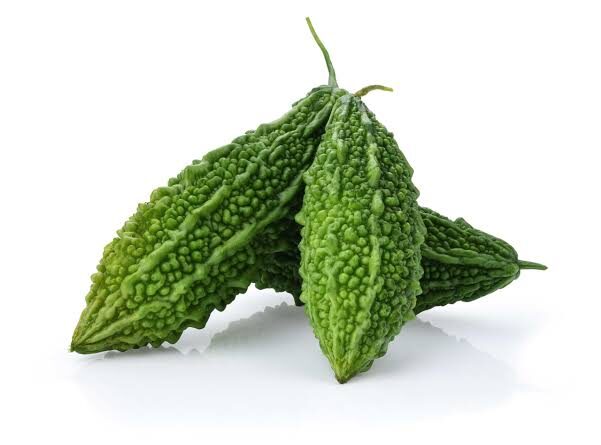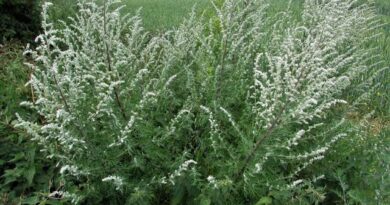26 Medicinal Health Benefits Of Momordica charantia (Bitter Melon)
Momordica charantia, commonly known as Bitter Melon, is a tropical and subtropical vine widely recognized for its therapeutic properties. This unique plant has a rich history of use in traditional medicine systems around the world, particularly in Asia, Africa, and South America. Its distinctive bitter taste has earned it the name Bitter Melon but this bitterness is just one facet of its remarkable health benefits.
The Botanical Description of Momordica charantia
1. Life: Momordica charantia belongs to the plant family Cucurbitaceae, which includes cucumbers, pumpkins, and squash. It is a perennial climbing vine that can reach lengths of up to 5 meters.
2. Leaves: The leaves of Bitter Melon are simple, alternate, and palmately lobed with 3-7 lobes. They are bright green and have a rough, textured surface.
3. Flowers: The plant produces yellow, solitary male and female flowers. The male flowers have a more prominent appearance with a distinct cluster of stamens, while the female flowers bear a small ovary at their base.
4. Fruits: The fruits of Momordica charantia are elongated, oblong, and usually covered in warty bumps. They start green and turn orange when ripe. The interior contains numerous seeds encased in a bright red, pulpy flesh.
5. Roots and Stem: The root system is fibrous, and the stem is slender, often showing a green or slightly purple hue.
The Geographic Distribution of Momordica charantia
1. Native Habitat: Momordica charantia, or Bitter Melon, is native to the tropical regions of Africa, Asia, and the Caribbean. It thrives in warm, humid climates and can be found in countries like India, China, Nigeria, and Brazil.
2. Widespread Cultivation: Due to its popularity for both culinary and medicinal purposes, Bitter Melon is cultivated in many parts of the world with suitable climates. It is grown extensively in regions of Southeast Asia, South America, and even in some southern U.S. states.
3. Climatic Preferences: Bitter Melon prefers temperatures between 25°C to 30°C (77°F to 86°F) and well-drained, sandy or loamy soil. It can withstand some drought but requires regular watering.
The Chemical Composition of Momordica charantia
1. Bitter Compounds: As the name suggests, Bitter Melon contains bitter-tasting compounds, including charantin, momordicin, and cucurbitacin. These compounds are responsible for its characteristic bitter flavor.
2. Vitamins and Minerals: Bitter Melon is a good source of essential nutrients, including vitamin C, vitamin A, and various B vitamins. It also provides important minerals such as potassium, iron, and calcium.
3. Antioxidants: The plant is rich in antioxidants like flavonoids and polyphenols, which play a key role in reducing oxidative stress and combating free radicals in the body.
4. Polypeptide-p: This unique compound found in Bitter Melon has been studied for its potential to mimic the action of insulin, making it beneficial for individuals with diabetes.
The Harvesting and Processing of Momordica charantia
1. Harvesting: Bitter Melon is typically harvested when the fruits are still green or just beginning to turn yellow. Ripe fruits are often too bitter for culinary use. Harvesting is usually done by hand, as the vines are delicate and can be damaged easily.
2. Processing: After harvesting, Bitter Melons are cleaned and sliced. Depending on the intended use, they can be used fresh in salads, stir-fries, or curries. They are also commonly dried and used in traditional herbal preparations or teas.
3. Culinary Use: In Asian cuisine, Bitter Melon is a versatile ingredient used in various dishes. It is often stir-fried with spices and other vegetables to balance out its bitterness. In some cultures, the seeds are also roasted and consumed as a snack.
4. Medicinal Preparations: For medicinal purposes, Bitter Melon can be juiced, dried, or made into a tincture. These preparations are used to manage diabetes, boost the immune system, and address various other health issues.
Read Also: 23 Medicinal Health Benefits Of Achyranthes Aspera (Prickly Chaff Flower)
The Medicinal Health Benefits Of Momordica charantia (Bitter Melon)

Bitter Melon, scientifically known as Momordica charantia, offers a wide array of medicinal health benefits, making it a valuable addition to both traditional and modern medicine. Here are 26 key health benefits along with explanations:
1. Diabetes Management: Bitter Melon helps lower blood sugar levels due to its insulin-like properties, making it effective for diabetes management.
2. Antioxidant Properties: It is rich in antioxidants, which combat free radicals and reduce oxidative stress.
3. Weight Management: Bitter Melon may aid in weight loss by promoting fat metabolism.
4. Immune Boost: Its immune-enhancing compounds strengthen the body’s defenses against infections.
5. Skin Health: Topical applications of Bitter Melon can help with skin conditions like acne and eczema.
6. Digestive Health: It promotes digestion and alleviates issues like indigestion and constipation.
7. Heart Health: Bitter Melon may reduce cholesterol levels and improve heart health.
8. Liver Health: It supports liver function and detoxification processes.
9. Respiratory Health: Bitter Melon can be used for respiratory conditions like asthma and bronchitis.
10. Anti-inflammatory: Its anti-inflammatory properties may help with arthritis and other inflammatory disorders.
11. Antimicrobial: It exhibits antimicrobial effects against various pathogens.
12. Blood Pressure Regulation: Bitter Melon may help maintain healthy blood pressure levels.
13. Anticancer Effects: Some studies suggest it may have potential in cancer prevention.
14. Eye Health: It contains vitamin A, which is essential for good vision.
15. Anti-aging: Bitter Melon’s antioxidants can slow down the aging process.
16. Wound Healing: Topical use may aid in wound healing.
17. Antipyretic: It can reduce fever due to its cooling properties.
18. Antispasmodic: Bitter Melon may alleviate muscle spasms.
19. Menstrual Relief: It can help manage menstrual disorders.
20. Antiviral: Some compounds have antiviral properties.
21. Antifungal: Bitter Melon extracts have shown antifungal activity.
22. Antiparasitic: It may help with certain parasitic infections.
23. Blood Purification: It aids in purifying the blood.
24. Anti-allergic: Bitter Melon may reduce allergic reactions.
25. Anti-anxiety: It has calming effects on the nervous system.
26. Memory Enhancement: Some research suggests it may enhance memory and cognitive function.
The Methods of Usage to Achieve the Provided Health Benefits Of Momordica charantia (Bitter Melon)
To harness the health benefits of Momordica charantia effectively, various methods of usage can be employed:
1. Dietary Incorporation: Include Bitter Melon in your diet by stir-frying, steaming, or adding it to soups and salads.
2. Herbal Teas: Brew Bitter Melon tea by steeping dried or fresh slices in hot water.
3. Capsules and Supplements: Supplements containing Bitter Melon extract are available for specific health goals.
4. Topical Applications: For skin issues, apply Bitter Melon paste or juice directly to affected areas.
5. Juicing: Extract the juice and consume it on an empty stomach for maximum benefits.
6. Tinctures: Alcohol-based tinctures are used for medicinal purposes.
7. Traditional Recipes: Explore traditional recipes from Asian and African cuisines.
The Side Effects Of Using Momordica charantia Medicinal Plant
While Momordica charantia offers numerous health benefits, it’s essential to be aware of potential side effects:
1. Hypoglycemia: Excessive consumption may lead to low blood sugar, especially in individuals on diabetes medication.
2. Digestive Distress: Bitter Melon’s bitterness can cause stomach upset in some people.
3. Diarrhea: Excessive consumption may lead to diarrhea.
4. Allergic Reactions: Rarely, individuals may experience allergic reactions like itching or rash.
5. Pregnancy Concerns: Pregnant women should avoid Bitter Melon, as it may stimulate uterine contractions.
6. Interaction with Medications: It may interact with certain medications, so consult a healthcare professional if you are on medication.
7. Hypotension: Bitter Melon may lower blood pressure, which can be problematic for individuals with already low blood pressure.
8. Gastrointestinal Bleeding: In rare cases, excessive consumption may lead to gastrointestinal bleeding.
9. Kidney Issues: People with kidney problems should use Bitter Melon cautiously, as it contains compounds that can affect kidney function.
Read Also: The Health Benefits of Herbal Plants
The Scientific Research and Studies of Momordica charantia (Bitter Melon)

1. Antidiabetic Properties: Numerous studies have explored Bitter Melon’s effectiveness in managing diabetes. Research has indicated that compounds in Bitter Melon can mimic the action of insulin and lower blood glucose levels.
2. Anticancer Potential: Scientists have investigated Bitter Melon’s potential in cancer prevention. Some studies suggest that it contains compounds with anticancer properties, although more research is needed.
3. Antioxidant Activity: Bitter Melon’s antioxidant properties have been studied extensively. These antioxidants help combat free radicals, reducing oxidative stress in the body.
4. Immune System Modulation: Research has indicated that Bitter Melon can modulate the immune system, enhancing the body’s ability to fight infections and diseases.
5. Cardiovascular Health: Studies have explored the impact of Bitter Melon on heart health. It may help in reducing cholesterol levels and maintaining healthy blood pressure.
6. Antimicrobial Effects: Bitter Melon extracts have shown antimicrobial effects against various bacteria and fungi, indicating potential applications in medicine.
7. Neuroprotective Properties: Some research suggests that Bitter Melon may have neuroprotective effects, which could be beneficial in neurological disorders.
8. Anti-inflammatory Effects: Compounds in Bitter Melon have demonstrated anti-inflammatory properties, making it a subject of interest in inflammatory conditions.
9. Digestive Benefits: Studies have explored Bitter Melon’s role in promoting digestive health, including its potential to alleviate constipation and indigestion.
10. Skin Health: Research has investigated the use of Bitter Melon in skincare products due to its potential in managing skin conditions like acne and eczema.
11. Antiviral Activity: Bitter Melon has been studied for its antiviral properties, showing promise in inhibiting certain viruses.
12. Hepatoprotective Effects: Some studies indicate that Bitter Melon has hepatoprotective effects, protecting the liver from damage.
13. Antispasmodic Properties: Research has explored Bitter Melon’s ability to alleviate muscle spasms, indicating potential use in muscle-related conditions.
14. Antianxiety Effects: Preliminary studies suggest that Bitter Melon might have calming effects on the nervous system, potentially aiding in anxiety management.
15. Antifertility Effects: Some animal studies have investigated Bitter Melon’s potential in affecting fertility, although human implications require further research.
16. Anti-arthritic Properties: Research has indicated that Bitter Melon might have anti-arthritic properties, potentially beneficial for individuals with arthritis.
17. Antipyretic Effects: Bitter Melon’s cooling properties have been explored in managing fever, although clinical applications need further validation.
18. Antiallergic Effects: Certain compounds in Bitter Melon have shown antiallergic effects in studies, indicating potential in allergy management.
19. Antidepressant Potential: Preliminary research has suggested Bitter Melon’s potential in influencing mood, although further studies are necessary for conclusive results.
20. Antifungal Activity: Bitter Melon extracts have demonstrated antifungal effects, making it a subject of interest in fungal infections.
The Safety Precautions and Recommendations In Using Momordica charantia (Bitter Melon) Medicinal Plant
1. Consultation: Before using Bitter Melon for medicinal purposes, consult a healthcare professional, especially if you have underlying health conditions or are on medications.
2. Dosage Control: If using Bitter Melon supplements, adhere strictly to recommended dosages to avoid adverse reactions.
3. Monitor Blood Sugar: Individuals with diabetes should monitor their blood sugar levels closely when using Bitter Melon, as it can lower blood glucose levels.
4. Allergic Reactions: If you experience itching, swelling, or rash after consuming Bitter Melon, discontinue use and seek medical attention.
5. Pregnancy and Breastfeeding: Pregnant and breastfeeding women should avoid Bitter Melon due to potential effects on the uterus and lack of sufficient safety data.
6. Surgery: If you are scheduled for surgery, inform your healthcare provider about your Bitter Melon usage, as it might interfere with blood sugar control.
7. Hypotension: Bitter Melon can lower blood pressure; individuals with low blood pressure should use it cautiously.
8. Kidney Issues: People with kidney problems should avoid Bitter Melon, as it contains compounds that can affect kidney function.
FAQs About Momordica charantia (Bitter Melon) Medicinal Plant
1. Is Bitter Melon safe for daily consumption?
Yes, Bitter Melon is generally safe for most people when consumed in moderate amounts as food.
2. Can Bitter Melon cure diabetes?
While it can help manage blood sugar levels, it’s not a cure for diabetes. Consult a healthcare provider for proper management.
3. Are there any interactions between Bitter Melon and medications?
Bitter Melon might interact with diabetes medications, leading to low blood sugar levels. Consult a doctor if you’re on medication.
4. Can pregnant women consume Bitter Melon?
Pregnant women should avoid Bitter Melon, as it may stimulate uterine contractions.
5. Is Bitter Melon effective against viral infections?
Some studies suggest antiviral properties, but more research is needed for conclusive evidence.
6. Can Bitter Melon be used for skincare?
Yes, Bitter Melon has been used traditionally for managing skin conditions due to its anti-inflammatory properties.
7. Does Bitter Melon have any effect on cholesterol levels?
Bitter Melon may help in reducing cholesterol levels, promoting heart health.
8. Is Bitter Melon safe for children?
In moderation, Bitter Melon is generally safe for children, but consult a pediatrician before introducing it into their diet.
9. Can Bitter Melon be used in cooking by diabetic individuals?
Yes, Bitter Melon can be included in diabetic diets, but portion control is essential due to its blood sugar-lowering effects.
10. Does Bitter Melon interact with blood pressure medications?
Bitter Melon can lower blood pressure; individuals on blood pressure medications should use it cautiously and monitor their levels regularly.
11. Can Bitter Melon be used for weight loss?
Bitter Melon’s compounds may aid in weight loss, but it should be part of a balanced diet and exercise regimen.
12. Is there a specific dosage for Bitter Melon supplements?
Dosages vary; it’s crucial to follow the instructions on the supplement label or consult a healthcare provider.
13. Can Bitter Melon be used for managing arthritis pain?
Some studies suggest anti-inflammatory effects, but consult a healthcare provider for appropriate arthritis management.
14. Can Bitter Melon help with digestive issues?
Yes, Bitter Melon promotes digestion and can alleviate issues like indigestion and constipation.
15. Are there any age restrictions for using Bitter Melon?
In general, there are no specific age restrictions, but individual health conditions should be considered before use.
16. Does Bitter Melon affect memory or cognitive function?
Preliminary research suggests potential memory-enhancing effects, but more studies are needed for conclusive results.
17. Can Bitter Melon be used to treat allergies?
Certain compounds have shown antiallergic effects, but it’s not a primary allergy treatment.
18. Can Bitter Melon be consumed as a preventive measure against cancer?
While some studies suggest anticancer properties, it should not replace conventional cancer prevention strategies.
19. Is Bitter Melon effective for wound healing?
Topical applications of Bitter Melon may aid in wound healing due to its antimicrobial properties.
20. Does Bitter Melon have any side effects on the nervous system?
In some cases, Bitter Melon may have calming effects on the nervous system, potentially beneficial for anxiety management.
21. Can Bitter Melon be used to treat respiratory conditions like asthma?
Bitter Melon has been traditionally used for respiratory conditions, but consult a healthcare provider for proper management.
22. Is Bitter Melon safe for individuals with liver issues?
Bitter Melon may have hepatoprotective effects, but it should be used cautiously, and medical advice should be sought.
23. How should Bitter Melon be stored to maintain its freshness?
Store fresh Bitter Melon in the refrigerator, wrapped in a plastic bag, and consume within a few days to maintain freshness and nutritional value.
Read Also: The Impact of Stress on Your Health and How to Manage It









